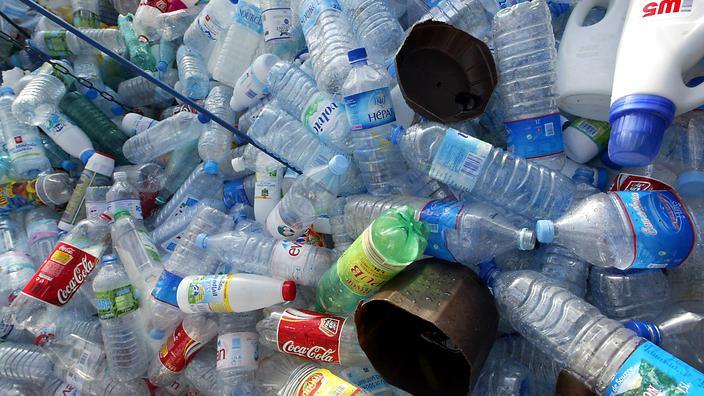Five years after COP 21, a plastic stirrer in coffee can cause feelings of guilt.
But hard-boiled eggs in polystyrene trays in plastic film are still available on the shelves, although they could be packed in ... their shell.
The French agri-food industry is the second largest contributor to the country's carbon footprint, just behind oil activities, says the General Commission for Sustainable Development, far ahead of construction, agriculture, automotive or air transport. , yet pointed out.
In question, its distant imports, but especially its packaging, the first users of the plastic produced in the world.
In France, 45.5% of the consumption of plastics is used to manufacture packaging, indicates the “Plastic Atlas” of the Heinrich Boll foundation.
Within Danone, Coca Cola or the milk carton giant Tetra Pack, the packaging recycling rate has nevertheless increased significantly since COP21.
Coca-Cola, PepsiCo and Nestlé, the "biggest polluters" according to Greenpeace
But this greening involves costly structural changes on the production lines.
Greenpeace has just placed Coca-Cola, PepsiCo and Nestlé in the top three of “the world's biggest polluters in terms of plastic waste”.
In France, after having taken ten years to include 30% of recycled plastic in its bottles, CCEP, the bottler of Coca-Cola in Europe, plans to achieve "50% within two years" and 100% by 2030 In Sweden, Norway and Holland, Coca is "already at 100%", specifies to AFP Arnaud Rolland, CSR director of CCEP in France.
"Some countries are going faster, because they have (...) more efficient collection systems" than in France, he says.
As packaging represents 43% of CCEP's carbon emissions, the group has invested in a factory near Dijon which recycles 48,000 tonnes of plastic per year, 1.5 billion bottles.
The group is counting on carbon neutrality in 2040.
Incineration rather than recycling
Manufacturers complain about the lack of a recycling channel for several molecules: polystyrene, polyethylene (PE) and polypropylene (PP) films.
Even sorted in the yellow bin, the yoghurt pots, blisters of white ham, bags of crisps or salad most often go to incineration: only 5% were recycled in 2019, according to Citeo, specialized in the recycling of household packaging, compared to 61% of bottles and flasks, 57% of bricks, 85% of glass, 48% of aluminum and 100% of steel from cans or cans.
As a result, research is focused on improving the design of packaging.
Start-ups are embarking on reusable wax-coated cotton canvas.
A Montpellier lab is developing a biodegradable plastic tray.
For Coca-Cola, CCEP has just invested in two companies in the Netherlands which perform chemical recycling by decomposing primary molecules.
Danone, which has announced 2 billion euros to respond to climate issues, has spent most of its bottles of Evian and Volvic in 100% recycled and plans in 2025 not to use any virgin plastic for its water.
Danone and Nestlé are working with a start-up in Auvergne, Carbiolice, which makes plastic compostable by adding an enzyme, provided it is of plant origin.
The start-up, owned by Limagrain and the Public Investment Bank (BPI), has just obtained European certification "guaranteeing that its packaging will be compostable, even in garden composters", tells AFP its president Nadia Clear.

